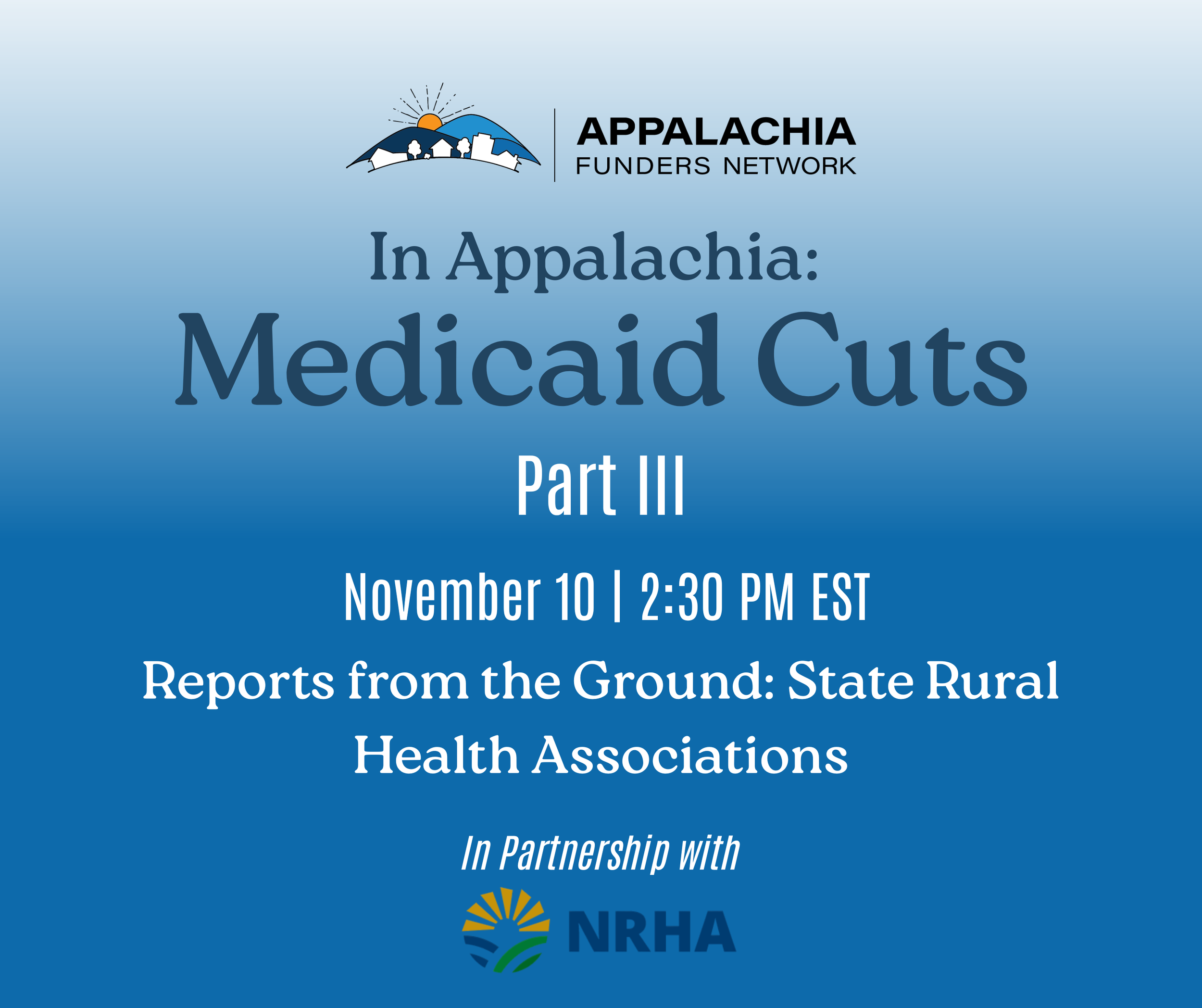
In Appalachia: Medicaid Cuts Part IV | Introspection, Insight, and Action (Group Debrief)
In Appalachia: Medicaid Cuts Part IV
Part IV: Introspection, Insight, and Action
In our last call, we’ll set aside time for reflection and shared learning. Rather than hearing new presentations, this will be a space for members to debrief the recent discussions, share what resonated most, and consider how these lessons might be applied in your own philanthropic practice.
In this session, we will:
Reflect on key insights and shared learning from the series.
Discuss how members are applying lessons in their own work.
Identify next steps for philanthropy’s role in sustaining rural health transformation.
Our goal is not only to reflect, but to chart a path forward: identifying where members want to learn more, where coordination is most needed, and how philanthropy can continue to play a catalytic role in building healthier, more resilient communities.
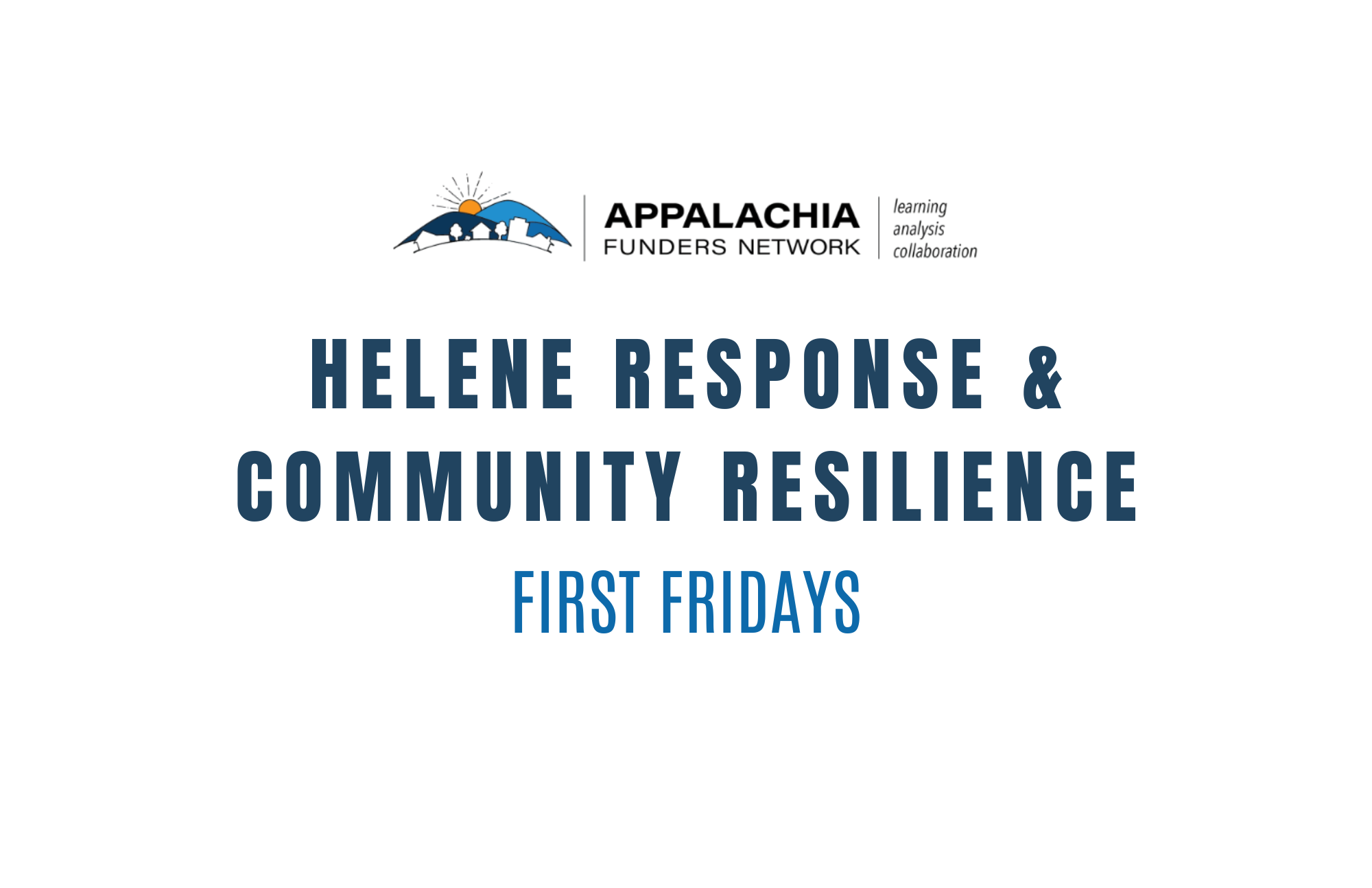
First Fridays: Helene Recovery and Community Resilience
Join us on the first Friday of every month for our network wide discussion on Helene Recovery and Community Resilience. We use this space to share updates, thoughts, and to organize.
Happening at 10 AM EST every first Friday. To get plugged in, use the button below to add the call to your calendar.
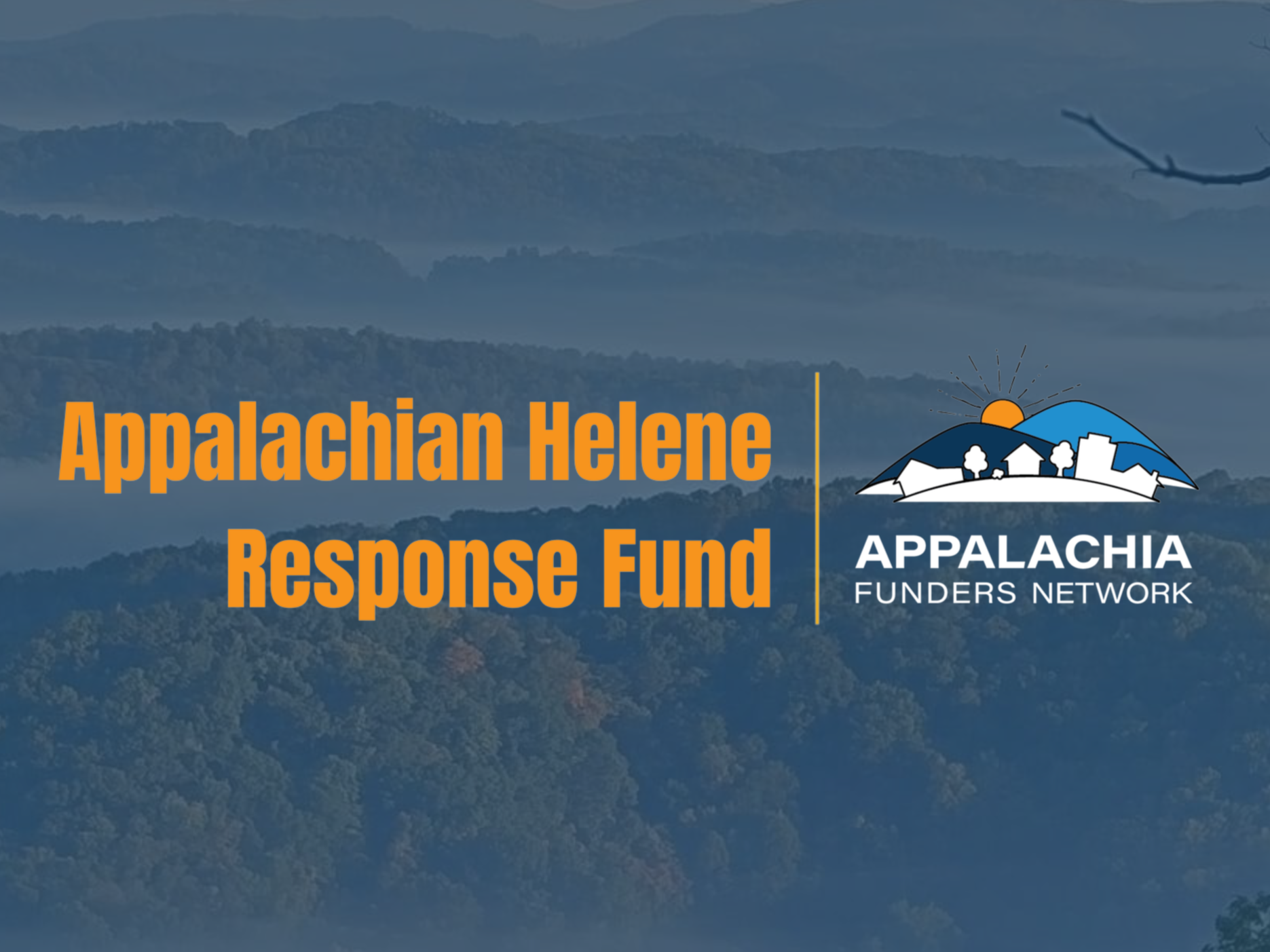
Funder Briefing: Appalachian Helene Response Fund
This conversation is for those who contributed to the Appalachian Helene Response Fund. In this call we’ll share how the Fund has been utilized, hear about the work that has been accomplished through the fund, and offer time for questions and reflection on continued needs and opportunities across the region.

In Appalachia: Medicaid Cuts Part III | Reports from the Ground with State Rural Health Associations
In Appalachia: Medicaid Cuts Part III
Part III: Reports from the Ground: State Rural Health Associations
In this follow-up conversation from Part II, we will revisit key initiatives in the workforce, access, and technology space. We’ll also hear from state rural health associations about what they’re seeing on the ground in the midst of shifting Medicaid resources and ongoing pressures on rural providers.
In this session, you will:
Hear directly from state rural health associations that bridge policy, practice, and community.
Discover how these associations advance advocacy, coordination, and implementation at the state level.
Identify opportunities for philanthropy to align and amplify impact across states.
For philanthropy, this conversation is especially important. Rural Health Associations are critical allies critical allies in programmatic work, advocacy, and education. But because The Fund itself is braided with Medicaid and other public dollars, but those resources can only stretch so far. Philanthropy plays a unique role to test innovative models, sustain essential services while reimbursement catches up, and ensure that community voices remain central to system transformation. As Rural health associations are often the bridge between state policy and local delivery systems, their insights is important in working to identify opportunities, elevate rural concerns, and align advocacy strategies.
Together, we will explore how funders can leverage partnerships, knowledge, and advocacy networks to maximize reach, coordinate resources more strategically, and amplify impact. If you are seeking practical ways to deepen your engagement, this session will clarify philanthropy’s role in ensuring rural communities do not simply weather Medicaid cuts, but move toward long-term transformation.

First Fridays: Helene Recovery and Community Resilience
Join us on the first Friday of every month for our network wide discussion on Helene Recovery and Community Resilience. We use this space to share updates, thoughts, and to organize.
Happening at 10 AM EST every first Friday. To get plugged in, use the button below to add the call to your calendar.

In Appalachia: Medicaid Cuts Part II | The Rural Transformation Fund and Impacts to this Safeguard
In Appalachia: Medicaid Cuts Continued
In August, we convened a group of member and partner funders for a conversation around the anticipated impacts of OBBBA’s enactment into law. Particularly as it related to rural hospitals, communities, and systems level impacts, AFN partnered with subject matter experts at National Rural Health Association for a data rich presentation on where the nation, and the region, were at for that moment. Now, we look forward to what comes next.
At the request of our members, this standalone session is now being continued into a Part II, Part III, and Part IV Learning Journey conversation!
Part II: The Rural Transformation Fund and Impacts to this Safeguard
The Rural Health Transformation Fund is a funding mechanism designed to strengthen rural health systems, especially in states with large underserved or medically vulnerable populations.
In this session, you will:
Understand how the Rural Health Transformation Fund blends Medicaid, public, and philanthropic dollars to strengthen rural health systems.
Explore initiatives in workforce, access, and technology that drive innovation and sustain essential care.
Learn how philanthropy can play a catalytic role amid ongoing Medicaid cuts.
Additional Information:
The Transformation Fund typically combines public dollars (like Medicaid) with private and philanthropic capital to:
Expand access to care in rural and frontier communities.
Support workforce development by training and retaining local health professionals.
Invest in technology and infrastructure (like telehealth, data systems, and broadband).
Advance community-based models of care that address not just clinical needs but also social drivers of health (transportation, housing, food security).
Medicaid cuts heighten both the urgency and the fragility of rural health transformation. Because the Fund is braided with Medicaid dollars, reductions shrink the pool of resources available for innovation and sustainability. Cuts also threaten the safety net in rural communities that already rely heavily on Medicaid, putting hospitals, clinics, and providers at risk. In this moment, philanthropy’s role becomes even more critical: stepping in with flexible capital, supporting advocacy, and ensuring community-driven solutions don’t lose momentum. By aligning with the Fund, philanthropy can help stabilize essential services today while continuing to invest in long-term transformation.
*After registering, you will receive a confirmation email containing information about joining this meeting, and an invite to join Part III and Part IV.
To Learn more about Part III and Part IV, click the links. Information about Part I is located on our blog, here.
Questions? Please contact jess@appalachiafunders.org

First Fridays: Helene Recovery and Community Resilience
Join us on the first Friday of every month for our network wide discussion on Helene Recovery and Community Resilience. We use this space to share updates, thoughts, and to organize.
Happening at 10 AM EST every first Friday. To get plugged in and added to the calendar invitation, please contact us

First Fridays: Helene Recovery and Community Resilience
Join us on the first Friday of every month for our network wide discussion on Helene Recovery and Community Resilience. We use this space to share updates, thoughts, and to organize.
Happening at 10 AM EST every first Friday. To get plugged in, use the button below to add the call to your calendar.

In Appalachia: Medicaid Cuts
Join us Thursday, August 7th at 2 PM EST for a conversation with the National Rural Health Association. Following legislation’s passing of OBBBA on July 2nd, we will discuss how the proposed Medicaid cuts will impact Appalachian counties and rural hospitals in the region. How can funders best (and most strategically) respond to this moment?
Please note: This conversation is being hosted by our Health group. but is open to call members of the network. If you are not a member and would like to attend, please contact us.

First Fridays: Helene Recovery and Community Resilience
Join us on the first Friday of every month for our network wide discussion on Helene Recovery and Community Resilience. We use this space to share updates, thoughts, and to organize.
Happening at 10 AM EST every first Friday. To get plugged in, use the button below to add the call to your calendar.

First Fridays: Helene Recovery and Community Resilience
Join us on the first Friday of every month for our network wide discussion on Helene Recovery and Community Resilience. We use this space to share updates, thoughts, and to organize.
Happening at 10 AM EST every first Friday. To get plugged in, use the button below to add the call to your calendar.

State of Funding in Appalachia
For the first time, we’re sharing comparative data on how philanthropy shows up—or doesn’t—for rural Appalachia. This builds on the groundwork laid by As the South Grows and represents the first dataset of its kind focused specifically on our region.
We hope this becomes a tool for funders, community leaders, and advocates to better understand the gaps and opportunities in resourcing our communities.
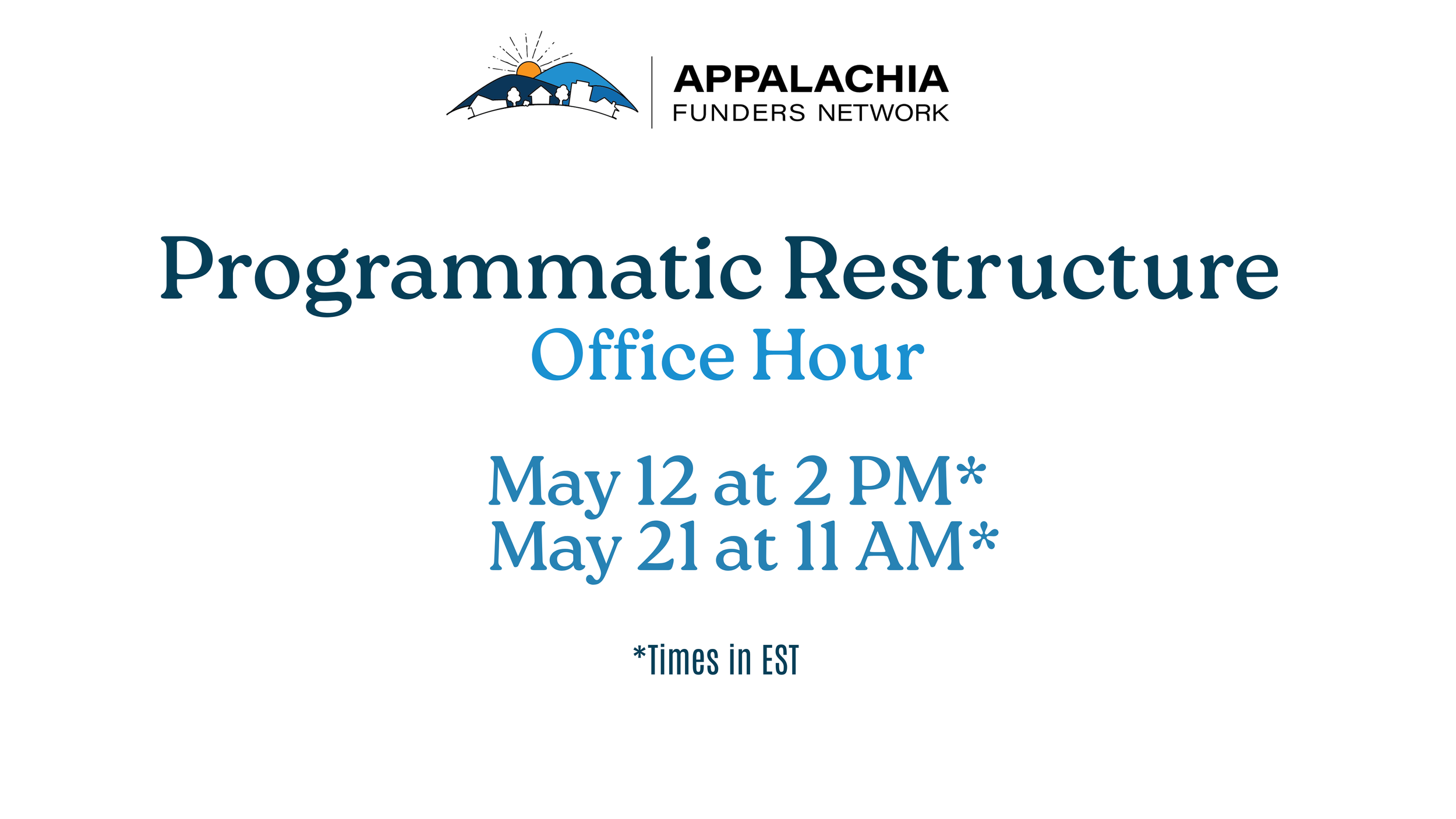
Office Hour: AFN Restructure
The AFN Structure is evolving away from groups, and into something more nimble, responsive, and better able to cater to the needs of our members. It came from months of member feedback, Steering Committee discernment over a summer retreat, and collaborative design process from our Restructuring Task Force.
We reviewed how our existing groups were functioning. We asked: What’s working? What’s missing? And how do we structure ourselves to serve both the urgency of the moment and the long horizon of Appalachian transition?
Announced at the 2025 Annual Gathering, join us for these optional Office Hours if you have questions, thoughts, ideas, or a plan. Wherever you may fall, we’re here to walk this road with you.

Office Hour: AFN Restructure
The AFN Structure is evolving away from groups, and into something more nimble, responsive, and better able to cater to the needs of our members. It came from months of member feedback, Steering Committee discernment over a summer retreat, and collaborative design process from our Restructuring Task Force.
We reviewed how our existing groups were functioning. We asked: What’s working? What’s missing? And how do we structure ourselves to serve both the urgency of the moment and the long horizon of Appalachian transition?
Announced at the 2025 Annual Gathering, join us for these optional Office Hours if you have questions, thoughts, ideas, or a plan. Wherever you may fall, we’re here to walk this road with you.

First Fridays: Helene Recovery and Community Resilience
*Following the Gathering, the May Call will fall on the second Friday, May 9th, 2025*
Join us on the first Friday of every month for our network wide discussion on Helene Recovery and Community Resilience. We use this space to share updates, thoughts, and to organize.
Happening at 10 AM EST every first Friday. To get plugged in, use the button below to add the call to your calendar.

AFN Restructure Roll Out
Announced at our 2025 AFN Annual Gathering, join us on May 6th at 1 PM for a deeper dive into our planned restructure, shared why, and timelines.

2025 AFN Annual Gathering
Building Bridges: Tradition, Transition, and Transformation in Appalachia
In Appalachia, the historic infrastructure that once transported extracted resources beyond its borders now stands as a reminder of transitions past. Yet, the presentation of Appalachian culture to the broader world often contrasts sharply with the lived realities of its people. Appalachians are no strangers to transitions—indeed, we have navigated them for generations.
As we face the next Appalachian transition, a critical question arises: how do we ensure it is just? As our communities weathered historic storm Helene this past summer (the second of two major climate events in the past two years), see historic levels of federal funding entering our communities, and are witnessing the largest generational transfer of wealth in history, we must seize this moment to capture, retain, and deploy these investments in innovative and deeply collaborative ways. Thus, bridging the the natural richness of Appalachian culture, people, and history with the transformative measures that will prepare our region for what comes next.

First Fridays: Helene Recovery and Community Resilience
Join us on the first Friday of every month for our network wide discussion on Helene Recovery and Community Resilience. We use this space to share updates, thoughts, and to organize.
Happening at 10 AM EST every first Friday. To get plugged in, use the button below to add the call to your calendar.
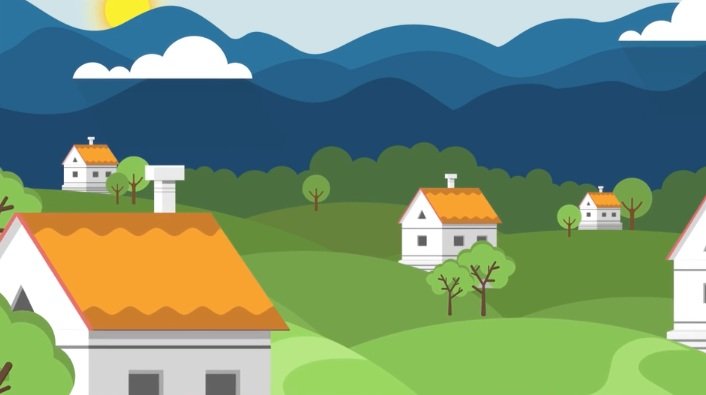
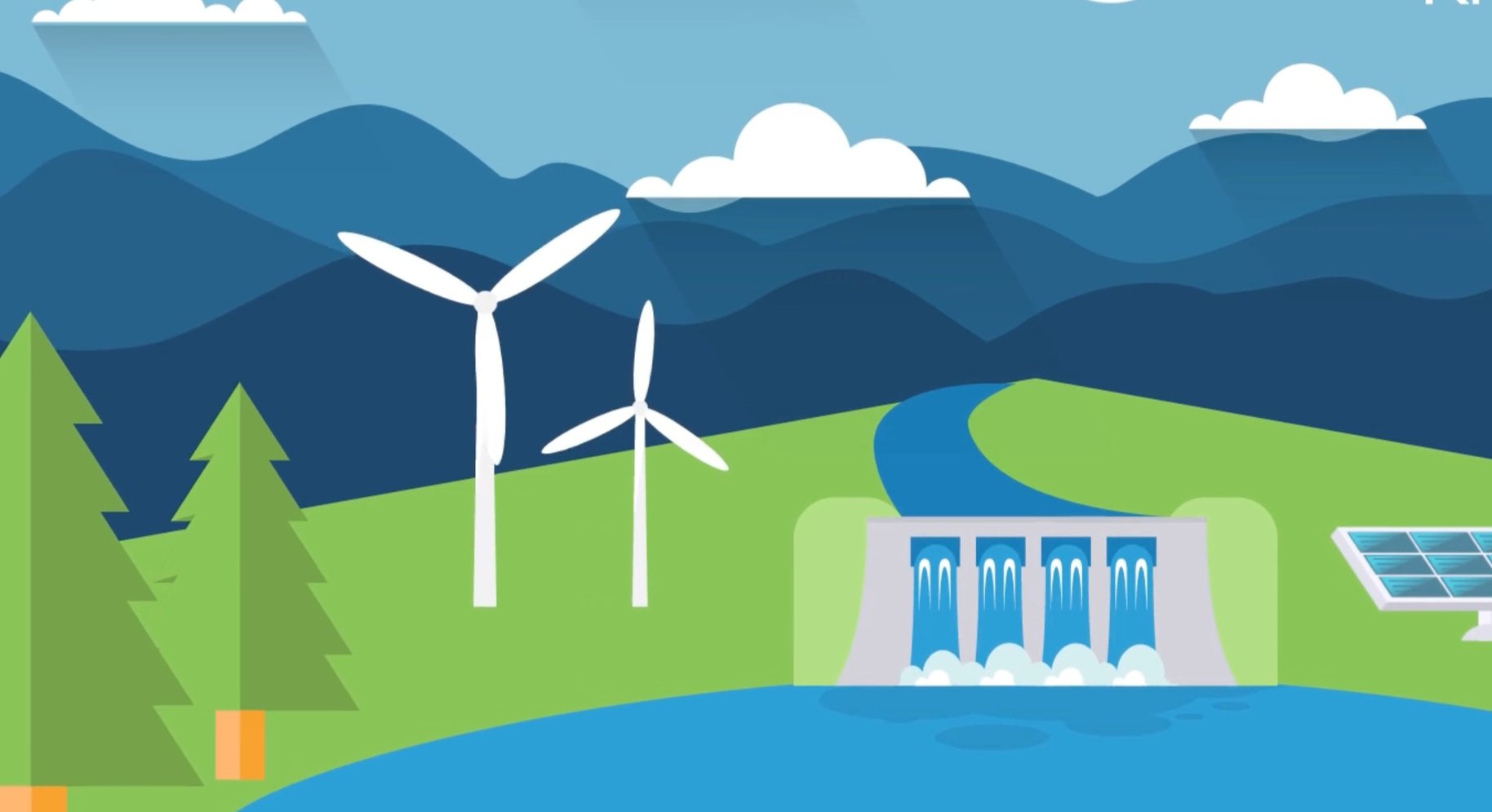
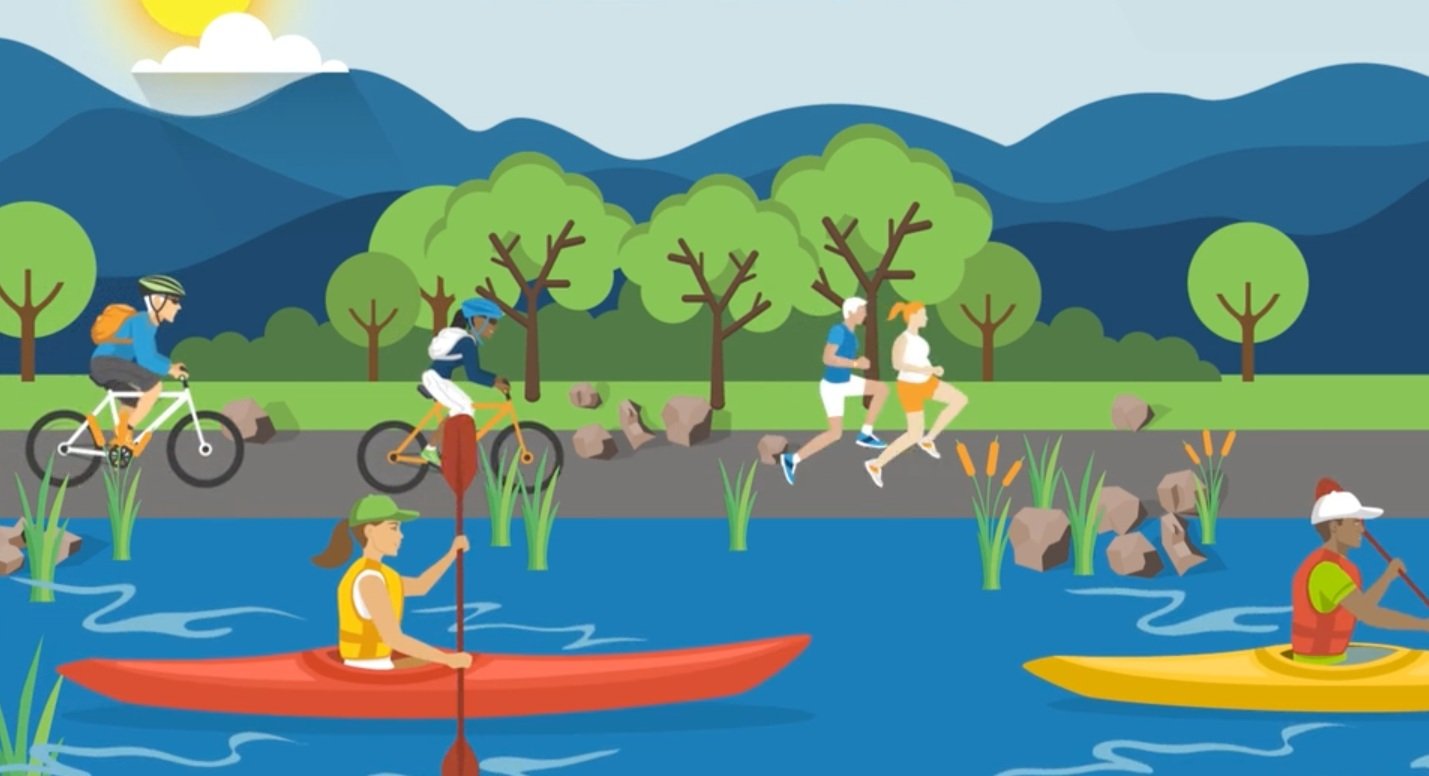
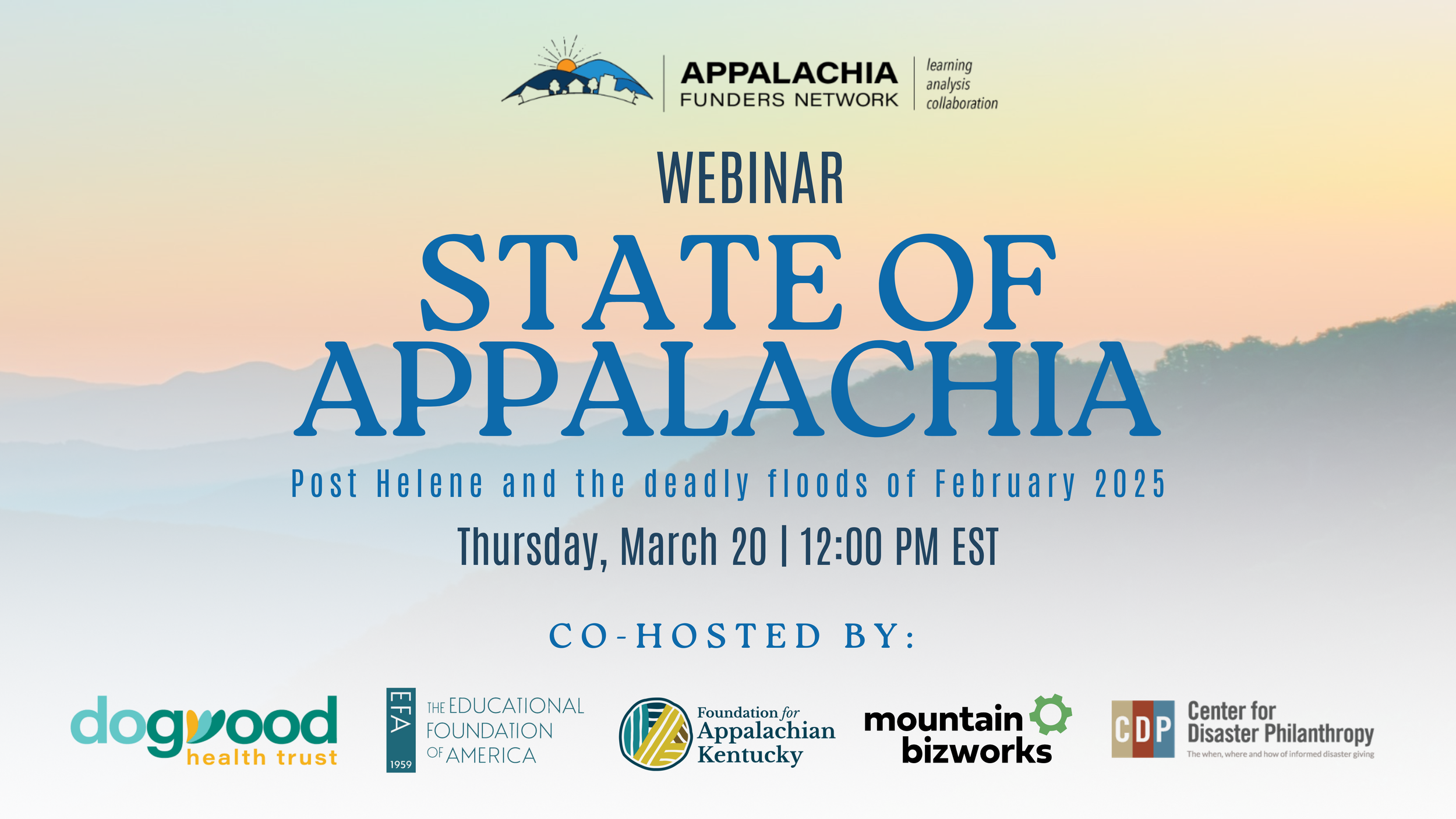
Webinar: State of Appalachia
State of Appalachia
Following Helene and the deadly winter Floods of February 2025, this webinar is meant to address the hard questions head on. Some have asked, “why rebuild in an area prone to flooding,”, while yet others wonder “how are things moving amidst shifts in the federal administration.”
As we discuss the above and beyond, we invite members and partners already investing in the region’s recovery to attend, as well as those who are considering it.
Co-Hosted by Dogwood Health Trust, The Educational Foundation of America, Foundation for Appalachian KY, and Center for Disaster Philanthropy.



First FridayS: Helene Recovery and Community Resilience
Join us on the first Friday of every month for our network wide discussion on Helene Recovery and Community Resilience. We use this space to share updates, thoughts, and to organize.
Happening at 10 AM EST every first Friday. To get plugged in, use the button below to add the call to your calendar.




A Look at Civic Language Perceptions in Kentucky and Appalachia
From Greater Clark Foundation and PACE:
A Look at Civic Language Perceptions in Kentucky and Appalachia
PACE’s Civic Language Perceptions Project seeks to understand peoples’ perceptions of the language associated with civic engagement and democracy work. The words Americans use to describe our civic values, ideals, and practices are also the words we use to connect, share, and co-create our communities and national future. What can we know about how aligned we are on our language choices related to our civic lives? Perhaps a more important concern underlies this question: Are we talking past each other about values we think we share?
Join us MONDAY, NOVEMBER 25 AT 12 PM for a look at how voters in Kentucky perceive civic language and how that compares with national trends.
This webinar is hosted by PACE: Philanthropy for Active Civic Engagement and Greater Clark Foundation. This event is co-sponsored by the Appalachian Funders Network and Grantmakers of Kentucky.


Post-Election Funder Debrief
Post-Election Funder Debrief
What do the election results mean for funders in Appalachia?
Join us November 18th at 1 PM for a funders only conversation hosted by AFN and Just Transition Fund. This lightly facilitated space is meant to give our members a platform to connect and engage in open dialogue following the 2024 election.
CO-HOSTED BY:

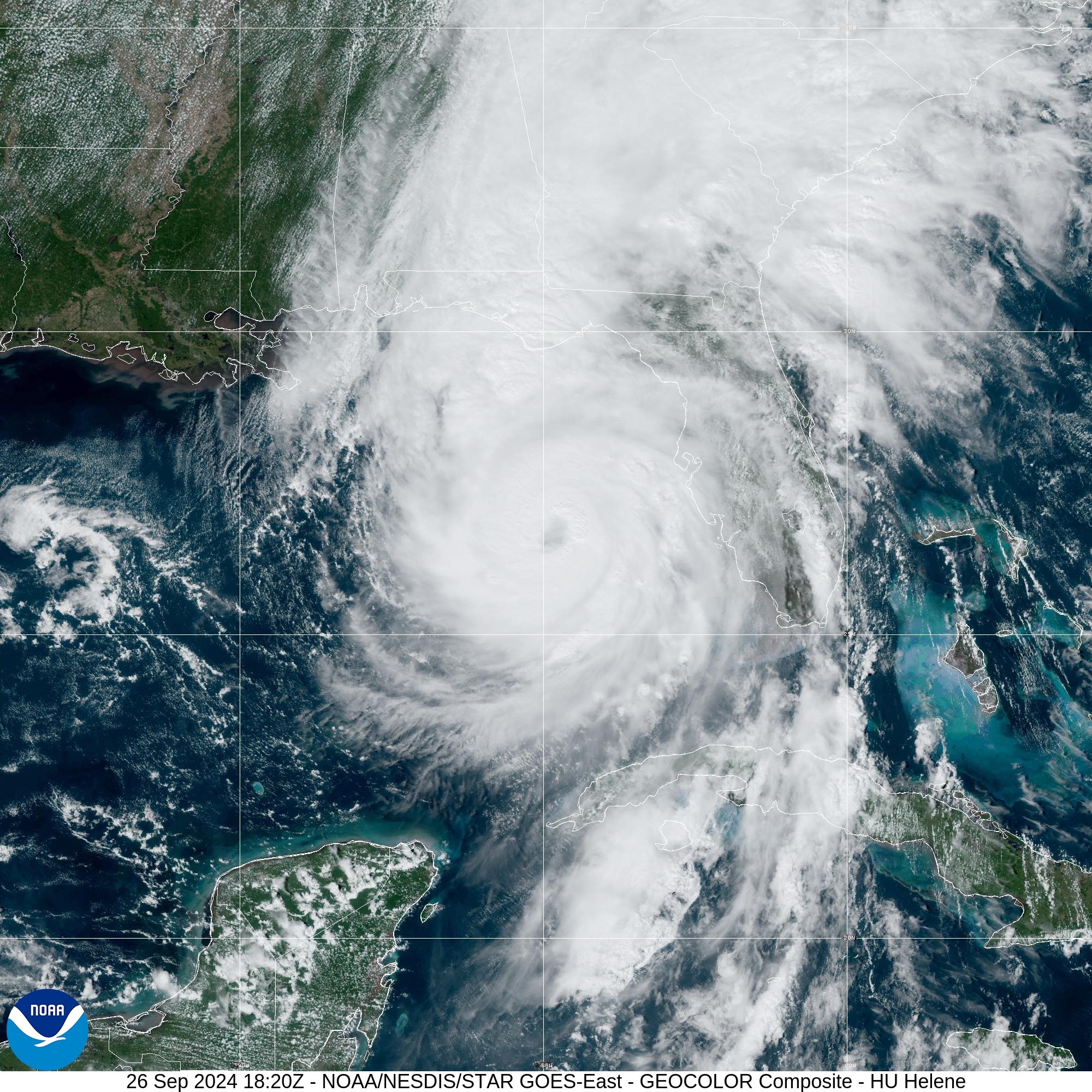
Presented by Center for Disaster Philanthropy | Hurricane Helene: How Funders Can Support Recovery
Hurricane Helene: How Funders Can Support Recovery
Presented by the Center of Disaster Philanthropy
Following the widespread impacts of Helene, our networks must endeavor to increase resilience and build out resourcing measures.
Photo: Hurricane Helene approaching Florida, Sept. 26, 2024. Credit: NOAA
From our friends at the Center for Disaster Philanthropy, join us tomorrow for a co-hosted webinar featuring panelists working actively on the ground.
Panelists include:
Debra M. Jacobs, President and CEO, The Patterson Foundation
And by the end of this webinar, donors will:
Understand the most urgent and ongoing needs in affected communities.
Learn how chronic and repetitive disasters create additional needs.
Be aware of ways they can invest funds to support community needs.
In addition to Appalachia Funders Network, this webinar is co-sponsored by The Funders Network, Florida Philanthropic Network, Philanthropy Southeast, Council on Foundations, United Philanthropy Forum, National VOAD, Network and North Carolina Network of Grantmakers.





